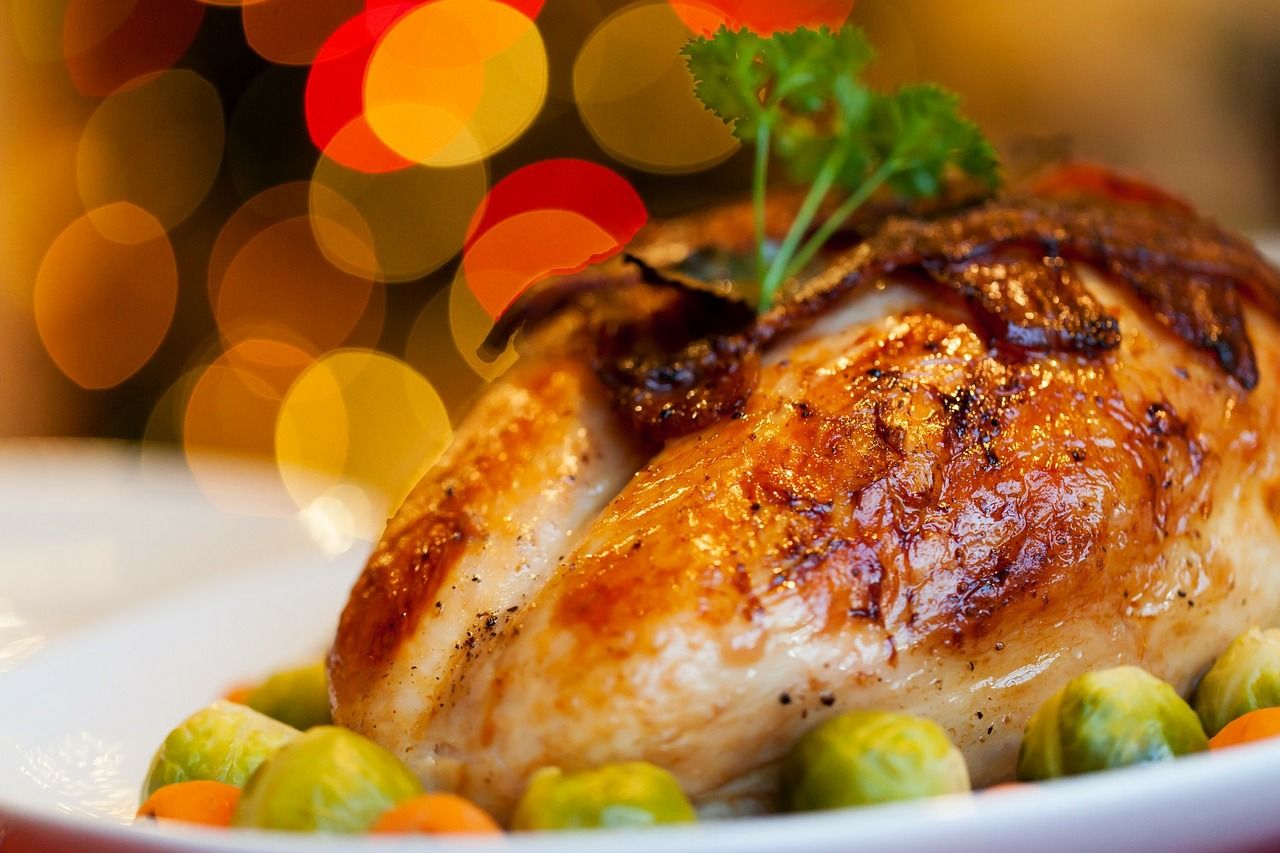For many Americans, holidays are about traditions that usually involve food. Iconic meals like Thanksgiving turkey, Christmas hams, and black eyed peas on New Year’s Eve have endured for several generations. Although the menu may stay largely the same for years to come, how the ingredients were produced and how they got to your plate are changing, and technology is playing an increasing role in your serving of pumpkin pie or egg nog.
In honor of Thanksgiving, we use the iconic turkey dinner and customary side dishes to see just how technology is disrupting our food supply chain.
You only need to peruse the package labels in the meat aisle at the supermarket to recognize the major shifts in our food system. Consumers are increasingly demanding more transparency about where their food comes from and also what is it in, but some don’t know what questions they should be asking. If you’re concerned about sourcing this year’s bird from a company that uses specific handling practices, then BuyingPoultry.com is the perfect place for the welfare-weary consumer.
Also looking at animal welfare, but from a different angle, are startups developing technologies to help farmers hone in on exactly how comfortable their birds may be. Intelia is manufacturing an environment controllers and data collection tools for the indoor animal agriculture industry to help farmers track variables like temperature and capture data to help improve operations.
As for side dishes, a growing number of options are available to you if you want to help reduce the inevitable mounds of food waste resulting from thanksgiving. A few startups are starting to find ways to make use of produce seconds; food that doesn’t make it to the supermarket shelf. These perfectly edible and nutritious items usually have blemishes, flaws, and other imperfections that make them aesthetically unfit. Souper Seconds and Imperfect Produce are too perfect examples, with the first targeting chefs and the second offering doorstep delivery CSA shares. Another startup is Spoiler Alert, which recently raised funding for a B2B platform to help food businesses, farms and nonprofits better manage unsold food inventory. It would also go a long way toward helping promote more investment in food waste technologies, which is desperately needed.
If waking up on Friday with food poisoning has you paranoid about your Aunt’s questionable cooking skills, then you’ll be relieved to know several startups are focusing their innovative powers on food safety tools. Companies like Sample6 and SafeTraces, which both received some venture capital funding this year, are already testing out products that include both quick detection methodologies and traceability tools.
While these are good examples of technologies that are currently disrupting your pumpkin pie, there are even more innovations in the pipeline. A company called Vital Farms is creating a method to end the practice of male chick culling, frequently decried by animal rights activists and eschewed by many a shocked consumer.
For egg-laying enterprises, female chicks are the only moneymakers in the flock. Unfortunately, there aren’t any reliable ways to determine whether the fertilized egg will hatch as a male or female. So what happens to the male chicks? They are killed instantly, sometimes by being placed into a large grinder. According to NPR, roughly 300 million male chicks are killed in this fashion annually.
In partnership with Novatrans, an Israeli company developing next generation hi-frequency and hi-power chips and systems based on THz technology, Vital Farms is analyzing the chemical composition of the gases that seep from an egg’s pores to determine the sex of the embryo inside before the chick hatches. This certainly bodes well for folks who are fond of eggnog.
Alongside your gravy, you could soon be whipping up some CRISPR-Cas9 mashed potatoes. The USDA recently declared that products created with the new gene-editing technology do not fall within the existing regulatory framework, giving them a quick path to commercialization. So far, the technology has been tested in a variety of vegetables and fruits including potatoes, oranges, mushrooms, tomatoes, wheat, rice, and soybeans.
Looking even further into the future, you may one day be sitting down to dine on a lab-grown turkey or a plant-based alternative derived from high-protein plants like peas. Memphis Meats, a a cultured meat company, recently told TechCrunch that it hopes to develop a lab-grown turkey someday.
We hope this provides you with lots of food-for-thought while you enjoy your thanksgiving meal today!
Are you having a high-tech Thanksgiving? Send us a pic! @AgFunder on Twitter or [email protected].





